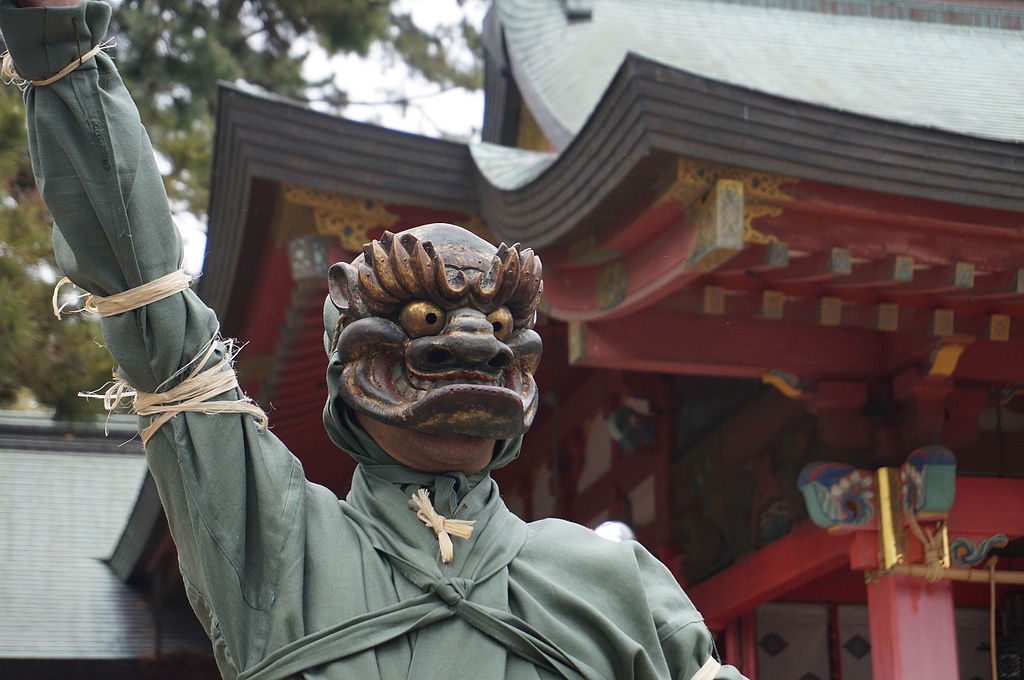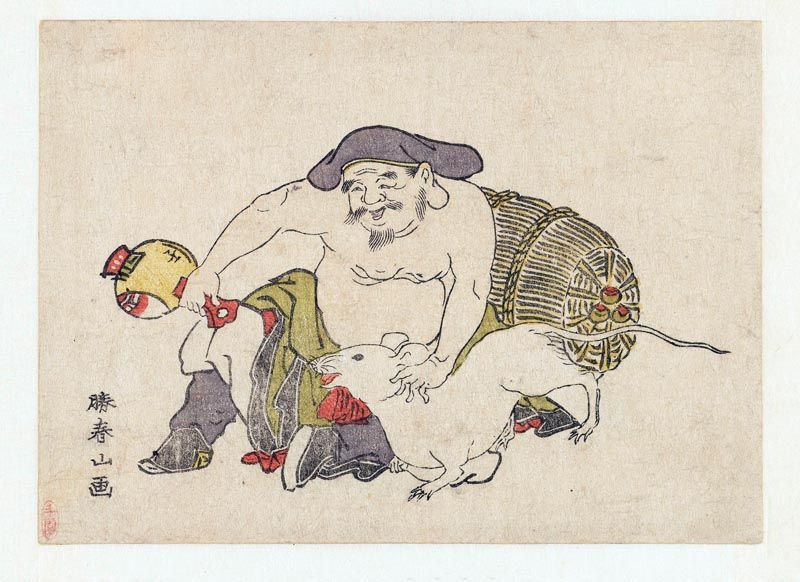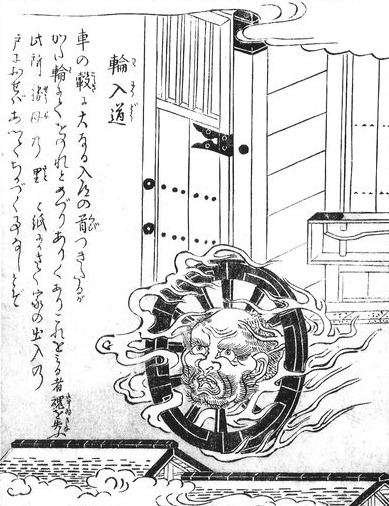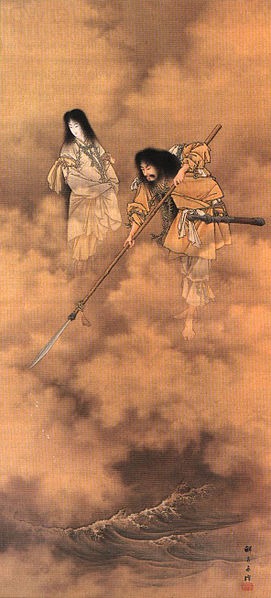This week continues spooky October with another Watanabe and Raiko monster adventure. You can find modernized versions of these and other stories in my compilation “Tales from Old Japan.”
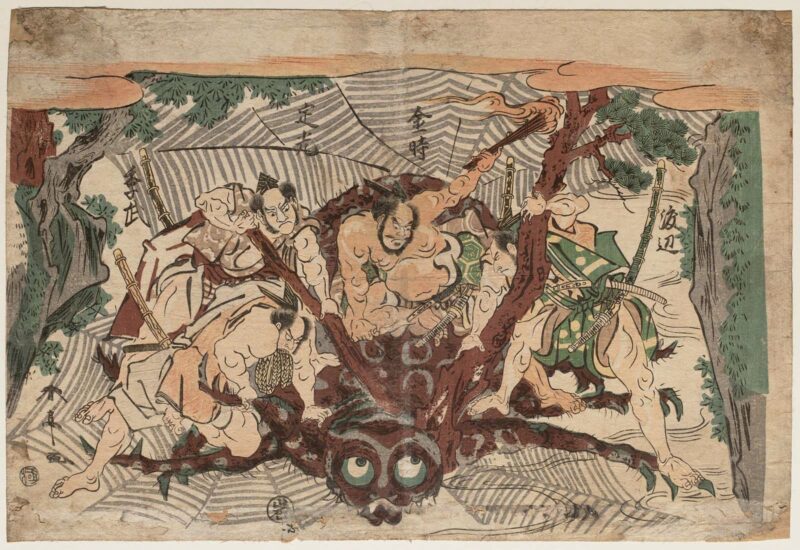
During the time in which Watanabé was forming his plan to destroy the onis that lurked in the Oyé mountains, the brave Raiko fell sick, and daily grew weaker and paler. When the demons found this out they sent the three-eyed imp called Mitsumé Kozo, to plague him.
This imp, which had a snout like a hog’s, three monstrous blue eyes, and a mouth full of tusks, was glad that the brave soldier could no longer fight the onis. He would approach the sick man in his chamber, leer horribly at him, loll out his tongue, and pull down the lids of his eyes with his hairy fingers, until the sight sickened Raiko more and more.
But Raiko, well or ill, always slept with his trusty sword under his pillow, and pretending to be greatly afraid, and to cower under the bed-clothes, the kozo grew bolder and bolder. When the imp was near the bed, Raiko drew his blade, and cut the oni across his huge double nose. This made the demon howl, and he ran away, leaving tracks of blood.
When Tsuna and his band heard of their brave master’s exploit, they came to congratulate him, and offered to hunt out the demon and destroy him.
They followed the red drops until they came to a cavern in the mountains. Entering this they saw in the gloom a spider six feet high, with legs as long as a fishing-pole, and as thick as a daikon radish. Two great yellow eyes glared at them like lamps. They noticed a great gaping wound as if done by a sword-cut on his snout.
It was a horrible, nasty hairy thing to fight with swords, since to get near enough, they would be in danger of the creature’s claws. So Tsuna went and chopped down a tree as thick as a man’s leg, leaving the roots on, while his comrades prepared a rope to tie up the monster like a fly in a web. Then with a loud yell Tsuna rushed at the spider, felled him with a blow, and held him down with the tree and roots so he could not bite or use his claws. Seeing this, his comrades rushed in, and bound the monster’s legs tight to his body so that he could not move. Drawing their swords they passed them through his body and finished him. Returning in triumph to the city, they found their dear captain recovered from his illness.
Raiko thanked his brave warriors for their exploits, made a feast for them, and gave them many presents. At this feast Captain Raiko told them that he had received orders from the mikado to march against the oni’s den in Tango, slaughter them all, and rescue the prisoners he should find there. Then he showed them his commission written in large letters,
“I command you, Raiko, to chastise the onis.”
He also allowed them to examine the gold brocade bag, in which it was kept, and which one of the fair ladies of the court had made for him with her own tapering fingers.
At this time many families in Kioto were grieving over the loss of their children, and even while Tsuna had been away, several lovely damsels had been seized and taken to the demon’s den.
Lest the onis might hear of their coming, and escape, the four trusty men disguised themselves as Komuso or wandering priests of the mountains. They put on over their helmets, huge hats like wash-bowls, made of straw, woven so tightly that no one could see their faces. They covered their armor with very cheap and common clothes, and then after worshipping at the shrines, began their march.
References
Griffis, William Elliot (1887) Japanese Fairy World: Stories from the Wonder-lore of Japan. London: Trubner & Co., Ludgate Hill.
